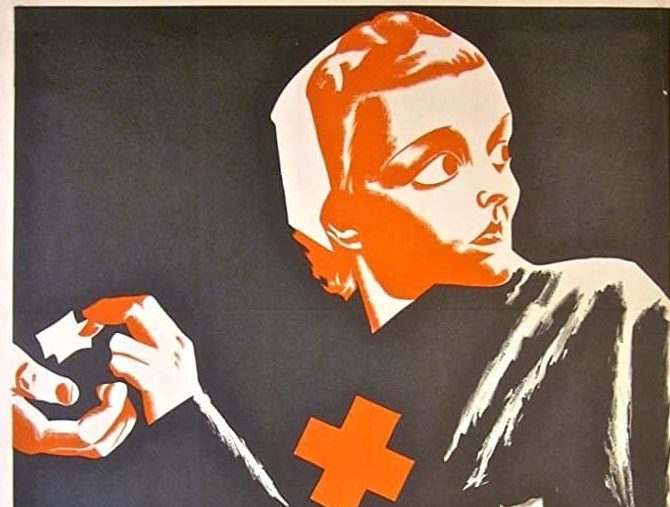Marthe Cnockaert was living in Westrozebeke, Belgium with her parents and brothers in 1914 when she learned the world was going to war. Her brothers went off to serve in The Great War, which would later be known as World War I. Marthe secretly wished that she could do something to fight for her country, as well, but women were not allowed to serve in the armed forces. It didn’t take long for the Germans to occupy Belgium, and locals were trying to defend their land at all cost.

German soldiers accused her father of trying to shoot at them. This was not uncommon. Roughly 1,000 Belgian civilians shot at German soldiers when they invaded their villages, and it was taken very seriously. They wanted to demonstrate that the would not tolerate civilian intervention in the war, so they burned down the Cnockaert family home. While she was able to escape with her parents, they were left homeless, surrounded by the enemy.
A kind neighbor let them stay in their home, and Marthe’s father decided to move to a nearby town called Rousseliere to work and earn some money to they could find another place to live. Marthe and her mother stayed behind in Wstrozebeke. She decided to become a nurse at the local hospital, where she treated both Belgian and German soldiers on a daily basis. As a nurse, she treated her patients equally, and she gained the respect of her co-workers at the hospital.

In 1915, a family friend named Lucelle Deldonck came to visit the Cnockaerts, and she asked Marthe if she wanted to serve her country by becoming a spy for British Intelligence. She agreed, and a few days later, an elderly woman who was selling beans in town slipped Marthe a piece of paper with instructions to meet a spy named “Lissette”, which she later learned was her family friend Lucelle’s spy name.
Marthe’s job was simple, but crucial. She was to continue living her day-to-day life, but keep her eyes and ears peeled for any information she may overhear from the German soldiers about locations of their ammunition, or plans of what they were going to do for the next attack. If she heard anything, she was supposed to meet up with members of the spy network, and get that information back to British Intelligence. A man with two safety pins on his collar was the person she knew to give her notes to. He knocked on her window in the middle of the night, and she would slip a piece of paper with encoded messages to him. This was not always the same man every night, but Marthe knew that as long as she saw the safety pins and knocked their secret knocks, she could trust him.

Marthe’s father bought a cafe in a nearby town called Rousseliere, which had apartments above it, so he could generate income, and give his family a new place to stay. German soldiers loved to go there to relax, and a few of the high-ranking members of the military were renting the upstairs apartments, as well. This was a perfect opportunity to eavesdrop on more German conversations, so Marthe would work there to help her father whenever she had a break from her shifts at the hospital. She got to know some of the German soldiers as friends, especially if she had been their nurse at one point. From the perspective of the Germans, she was being perfectly pleasant young woman, and she showed now signs that she resented them for burning down her house and occupying her country. Her family received letters from her brothers, so they knew that they were still alive, but that never takes away from the ongoing fear that they could die on the battlefield.

